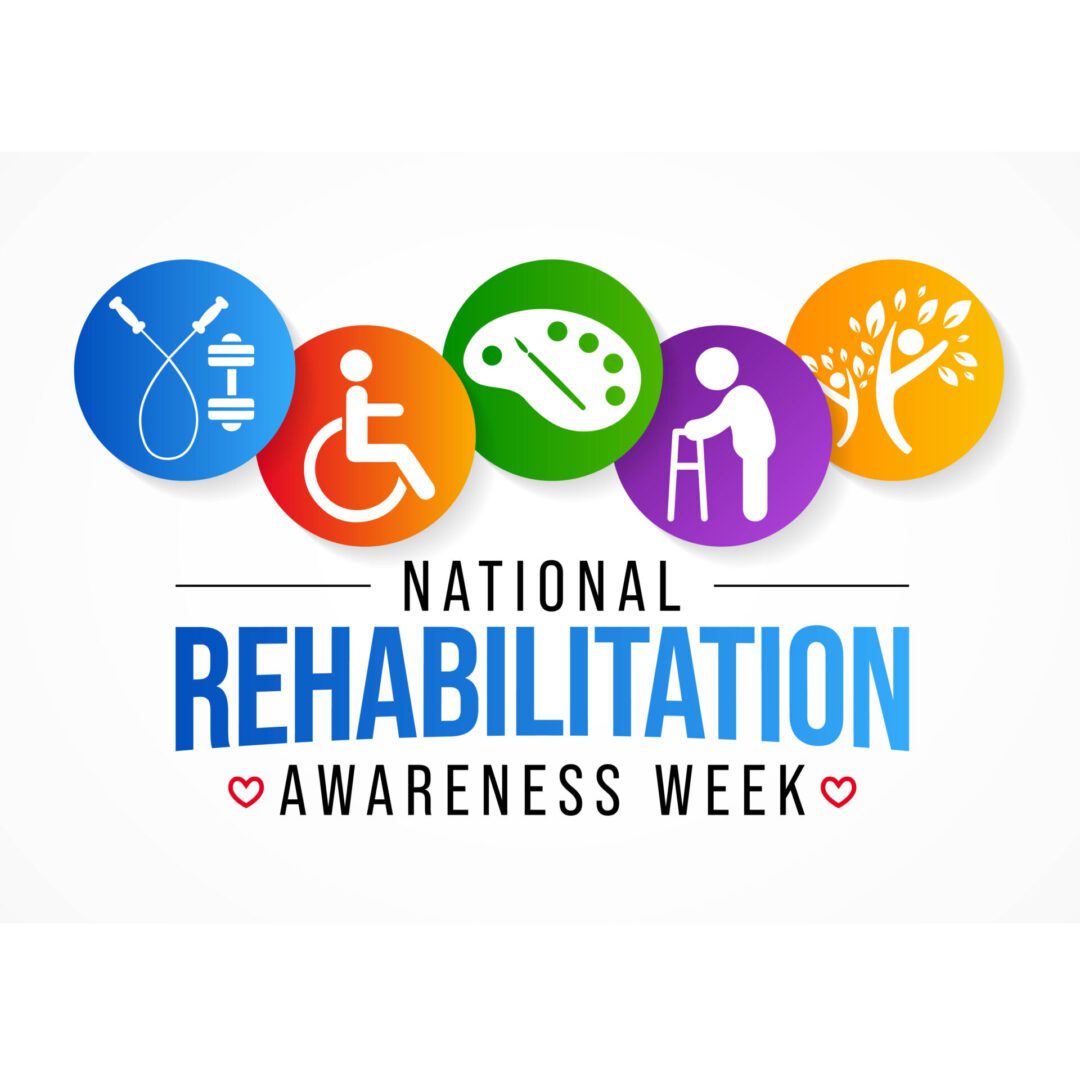Search by Color or Cause


To build awareness of the benefits of rehabilitation and the successes of those who have received treatment through all forms of rehabilitation, the National Rehabilitation Awareness Foundation (NRAF) established National Rehabilitation Awareness Week. National Rehabilitation Awareness Week is recognized every year during the third full week in September. The objective is to improve your health literacy. It is also to gain a better understanding of your personal healthcare needs. And, lastly, to help build awareness of the value and benefits of physical, occupational, and speech therapy. Wear a blue enamel awareness ribbon pin, fabric ribbon, or blue silicone awareness wristband bracelet for this important awareness week.
There are three main types of rehabilitation professionals. They are occupational therapists (OTs), physical therapists (PTs) and speech therapists. They are also called speech-language pathologists (SLPs). All types of rehab therapists work with people across the lifespan and in a variety of settings. You may see them in a clinic, hospital, nursing home, school or even your house. Depending on your needs, you might only see one type of therapist or work with all three.
Physical Therapists (PT’s) are best know for their ability to decrease pain and improve weak muscles and joints. This can be done preventatively. That means prevention before you become weak or hurt. For example, after a joint replacement surgery. It is also for people who have chronic conditions. Chronic conditions include chronic back pain. In addition, physical therapy can treat difficulty with motor control issues. This includes times such as after a stroke. Or, with Parkinson’s disease or with other movement disorders. Finally, PT’s can even help with conditions that you may not associate with physical therapy. This includes cardiac rehabilitation or urinary incontinence. We don’t always think about our hearts or our bladders being muscles, but they are. PT’s love to improve muscle strength regardless of in which part of the body it lives.
Occupational Therapists (OT’s) understand our daily occupations, such as preparing meals for your family, playing on the floor with your grandchildren, or taking a leisurely walk or run. This includes any other daily activity you engage in regularly, including meaningful independent tasks that affect your overall health. When we cannot engage in these activities due to physical health concerns, poor mental health, or general aging, we begin to experience a decreased quality of life. While aging and certain health issues are inevitable, OT’s can help by using various strategies, adaptive equipment, and rehabilitative strategies. They can also include health and wellness techniques to improve the ability to engage in preferred occupations.
Speech-Language Pathologists (SLP’s), also known as Speech Therapists, work to prevent, assess, diagnose, and treat speech, language, social communication, cognitive-communication, and swallowing disorders in children and adults. Most people are not aware of what a SLP does to help an adult. The four most common diagnosis an SLP treats are difficulty swallowing food and/or liquids, slurred speech, difficulty speaking or understanding speech, and voice disorders leading to a hoarse voice or an “old person” sounding voice. Because we have muscles inside our throats, many of the treatments an SLP uses include muscle strengthening of the lungs, throat, and tongue. Other interventions can include strategies to swallow food safer and changes in diet.